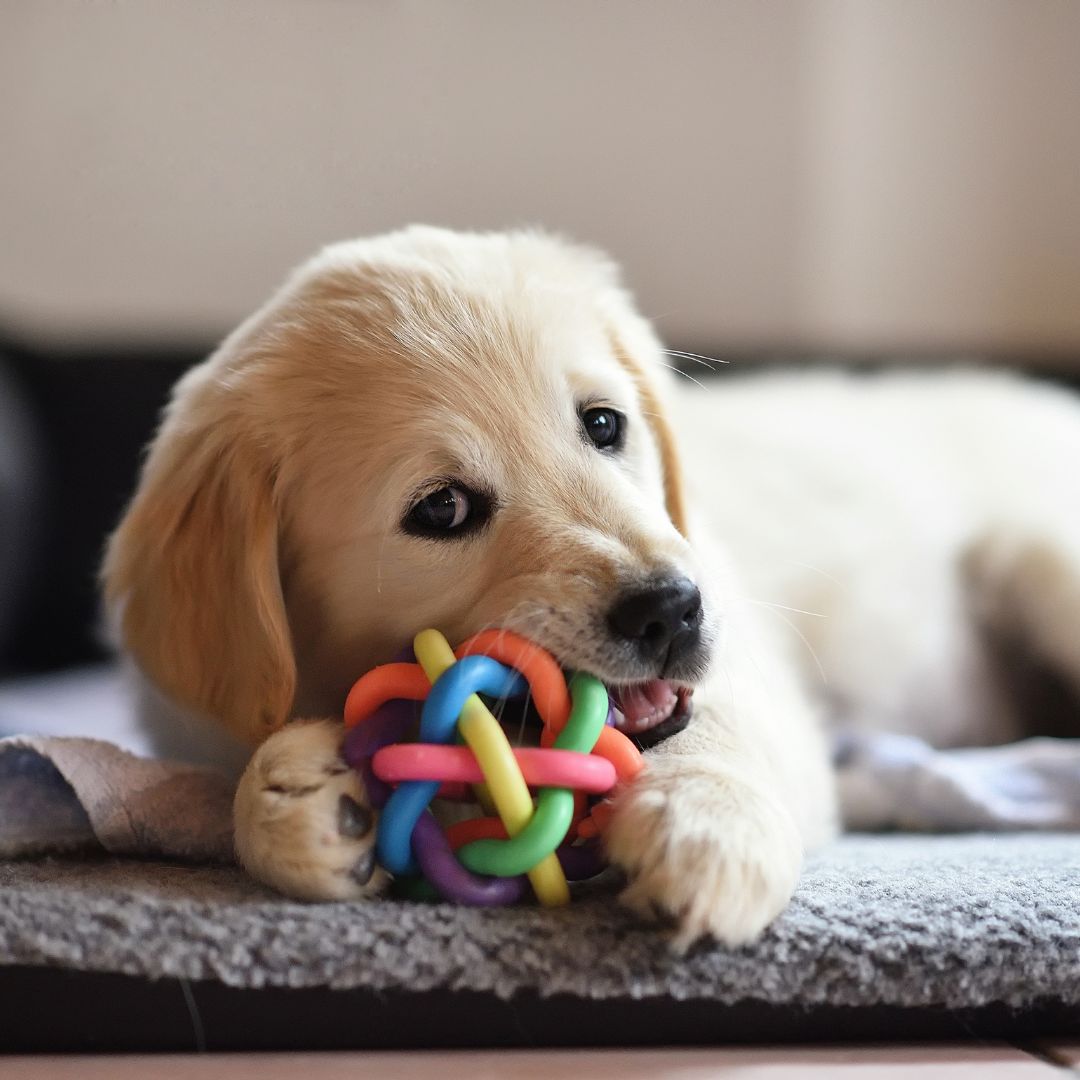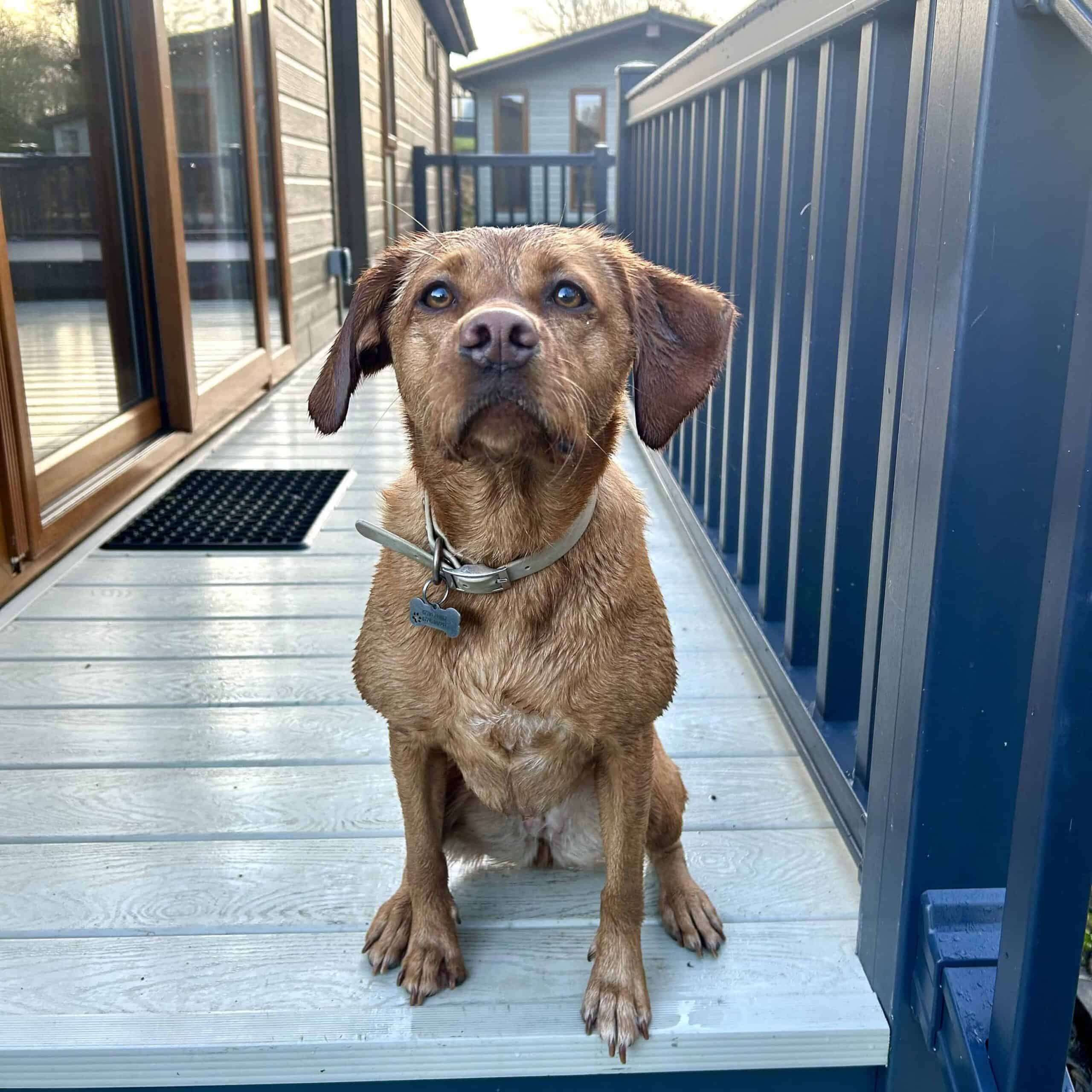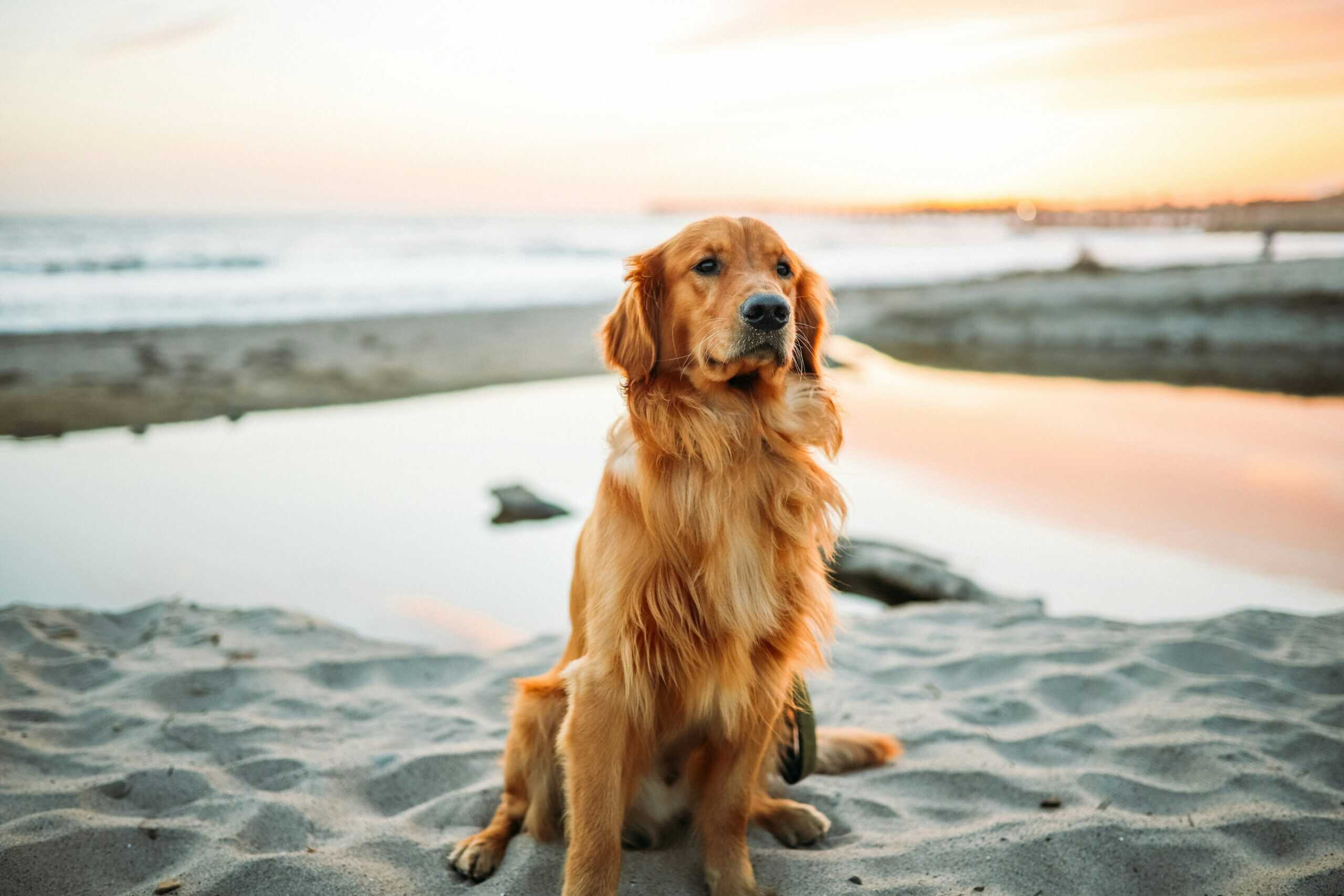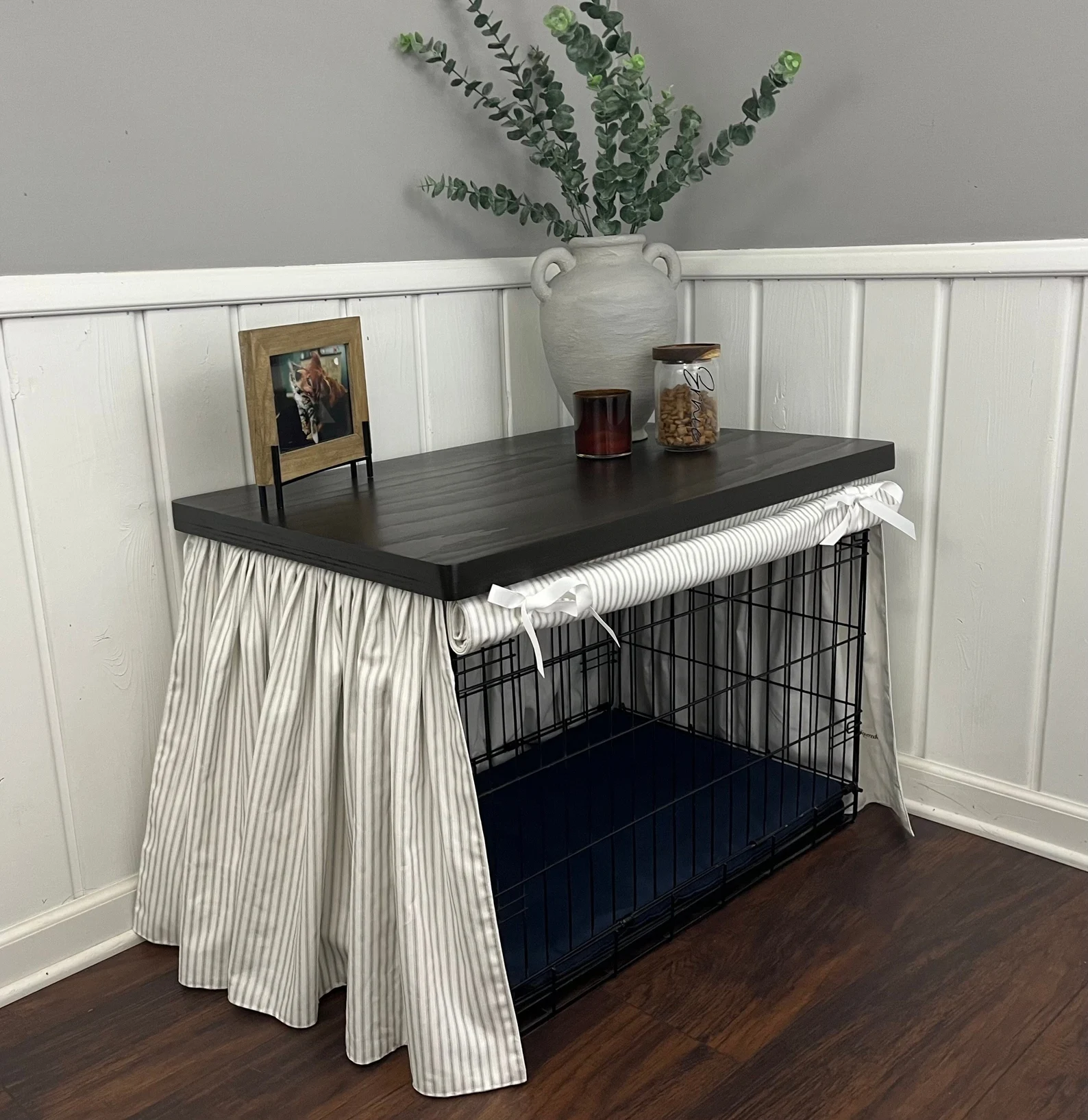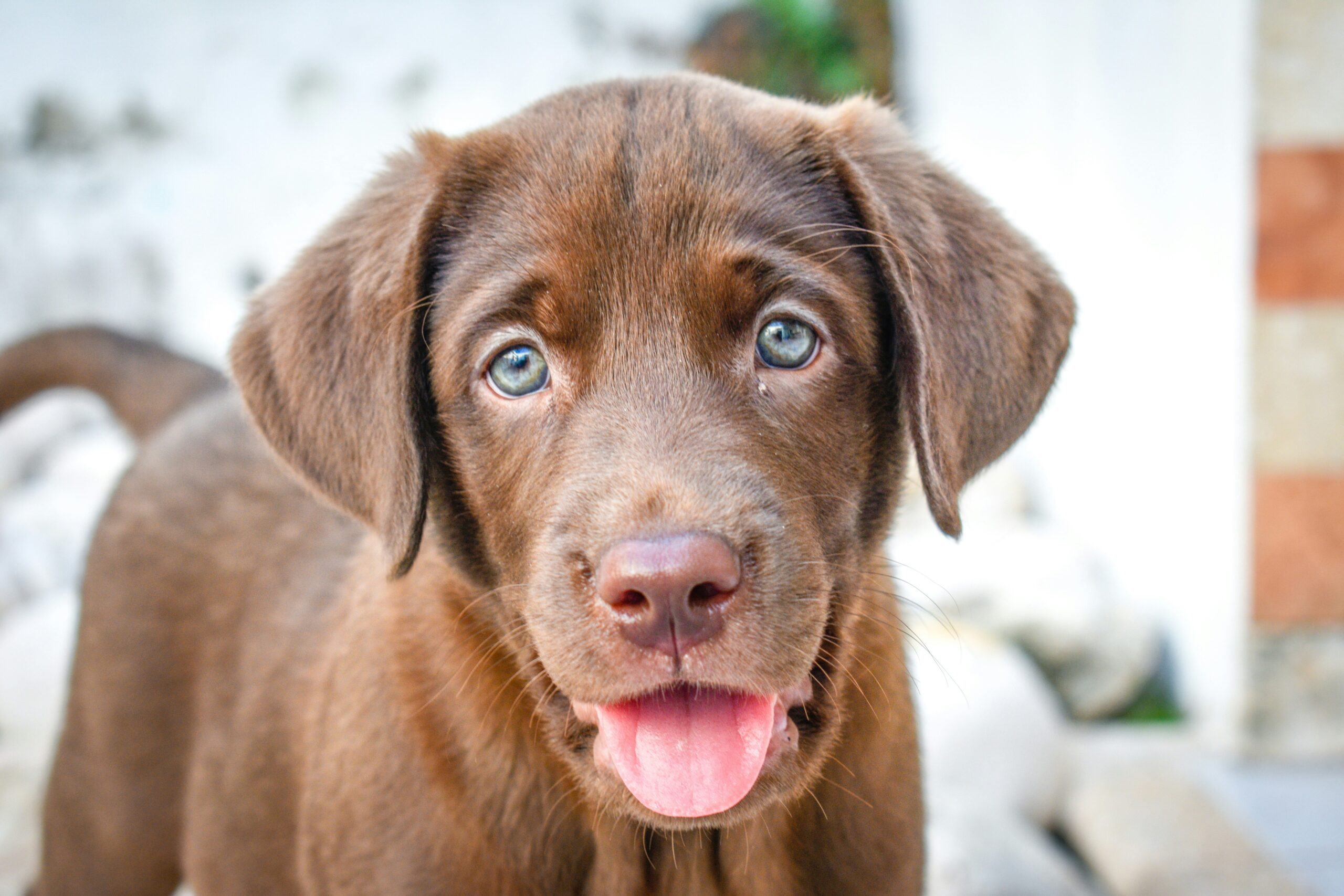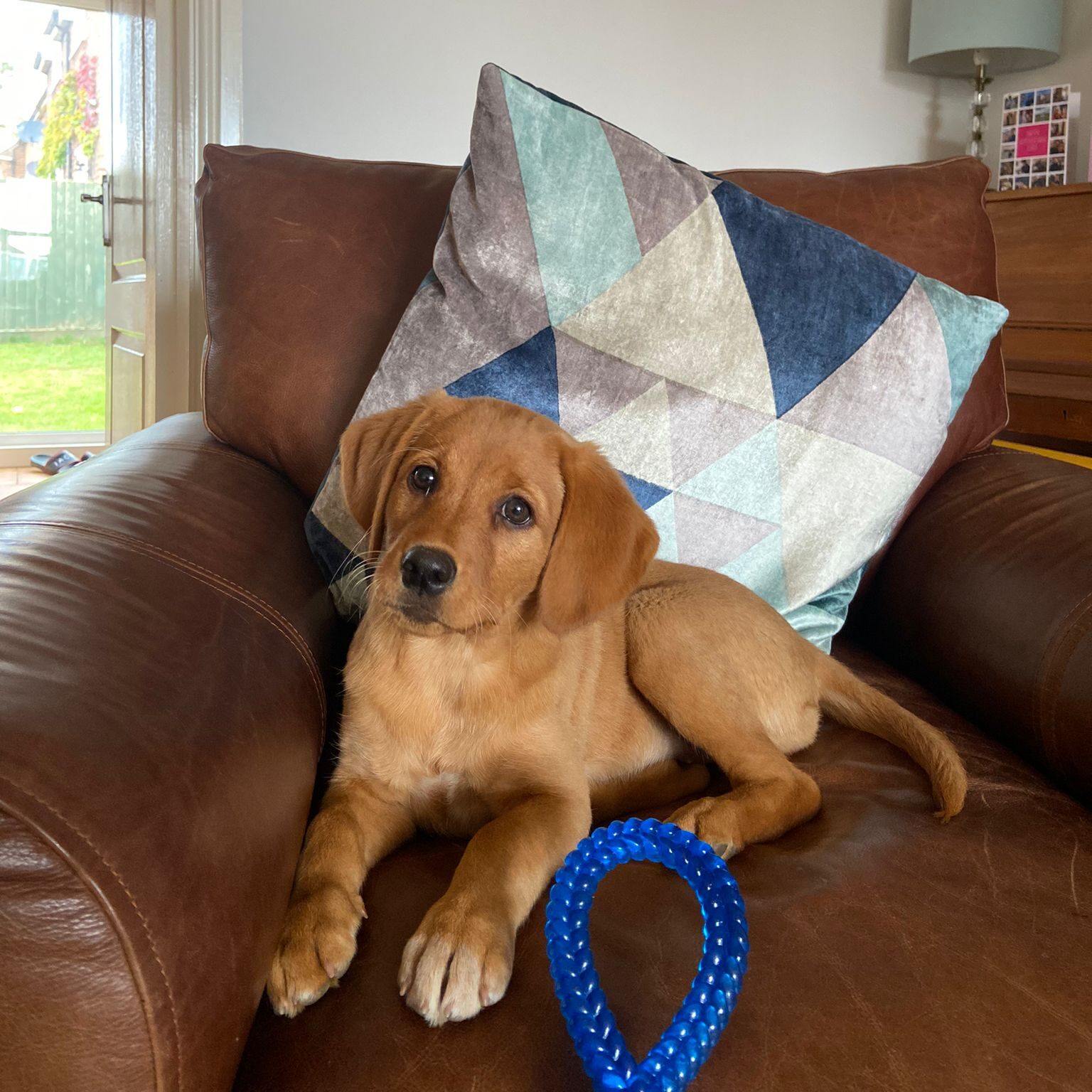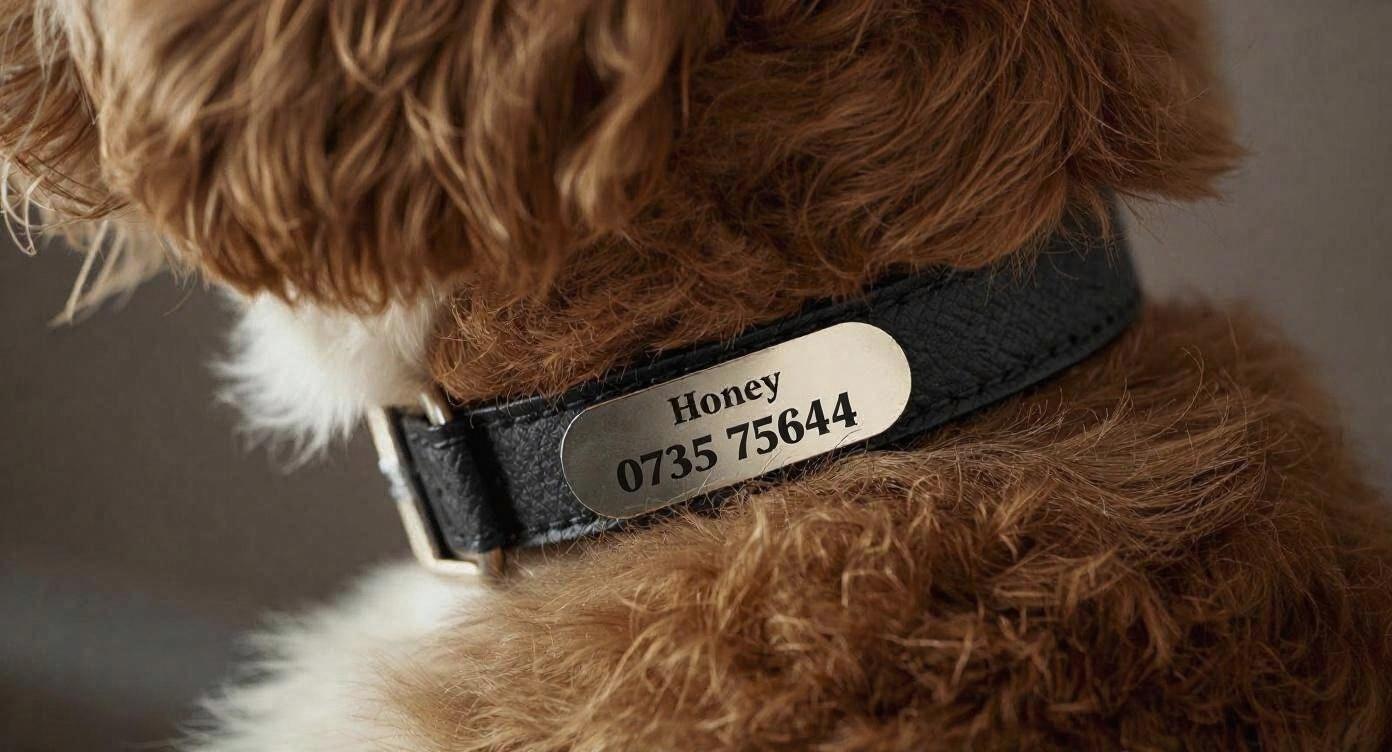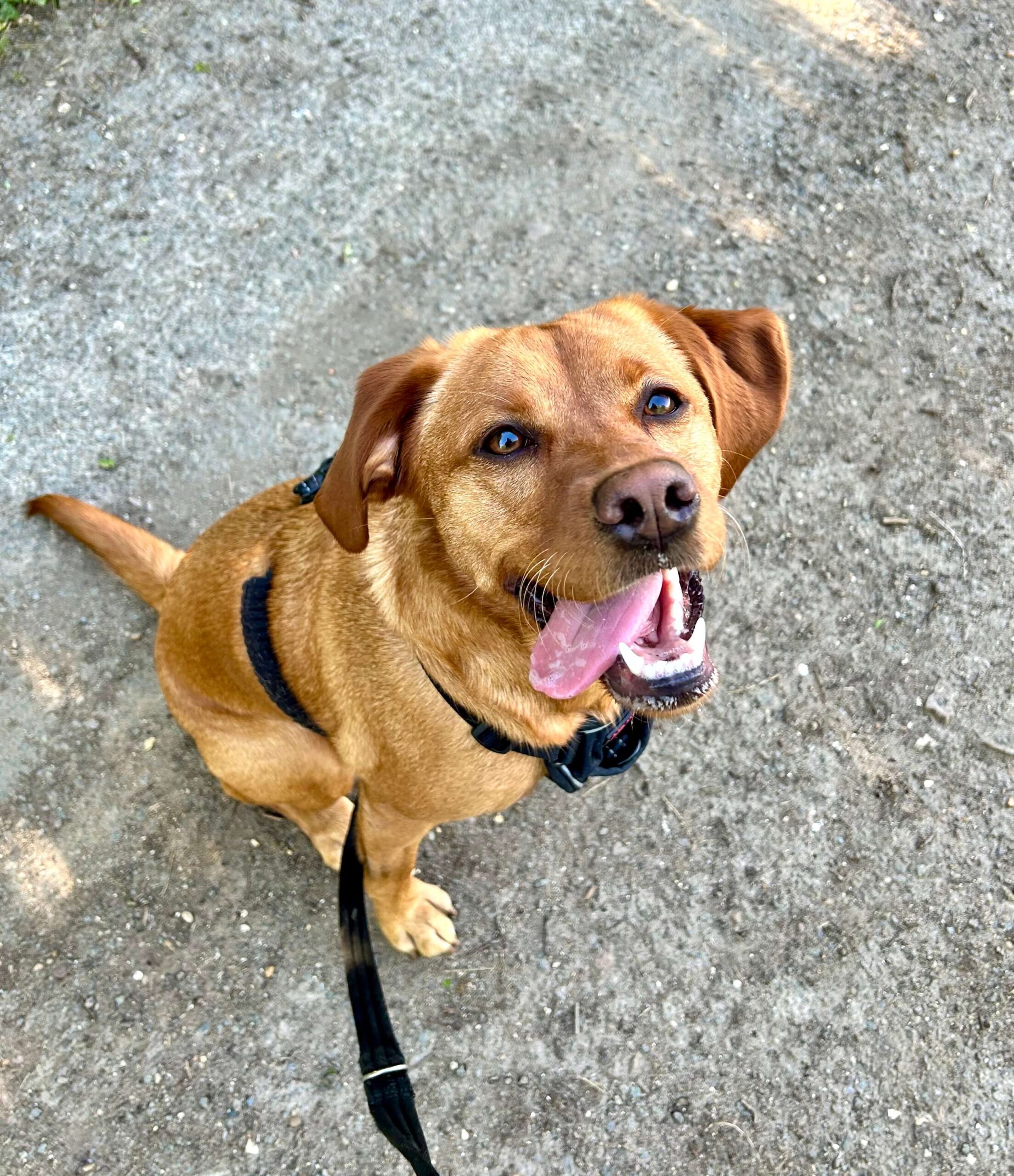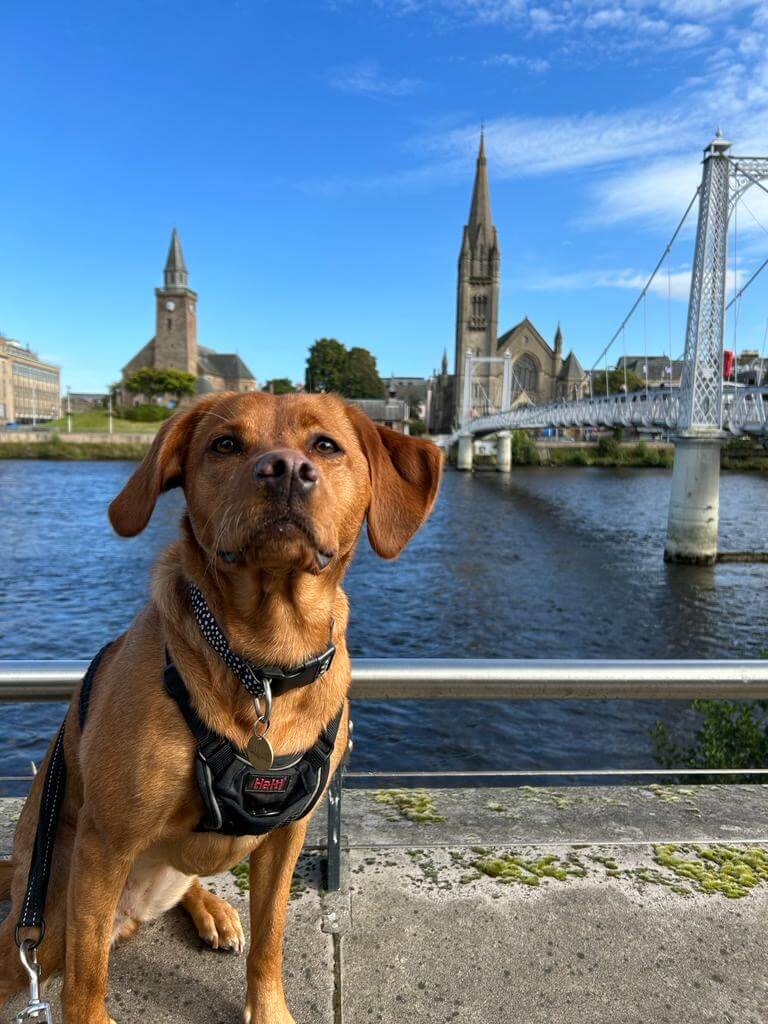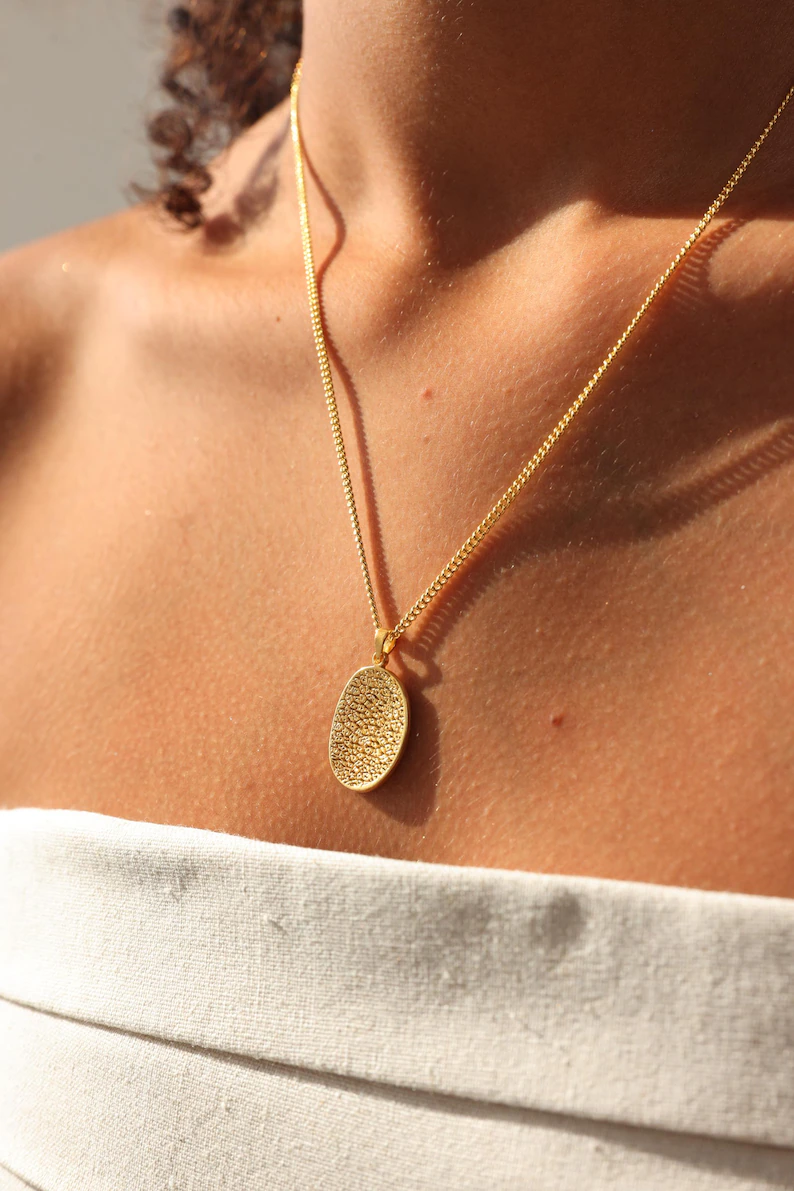Socialisation is the concept of giving your dog a range of positive experiences, to help them become well rounded and confident. It is typically associated with puppies, as the first 3-5 months of a dog’s life is a key socialisation period, while their brain is still developing. However socialisation is equally as important for rescue dogs, as they adjust to their new life with you.

Socialisation can include letting your dog meet children, other breeds of dogs, maybe even cats or farm animals. You can take them to shops, cafes, and ensure they experience traffic driving by. All these things can reduce the risk of your dog being anxious and fearful of the world around them once they are older. Here is a guide on socialising your dog in cafes.
Taking your puppy to another person’s house is one form of socialisation this post will focus on. I regularly take my dog to other people’s houses, as it allows me to enjoy time with friends and family without worrying about leaving my dog at home too long. Also I might be biased, but I think everything is more enjoyable when my dog is with me!
You may have relatives that live far away enough that visiting them takes a whole day, or you need to stay the night. There also may be occasions where you go away and need to leave your dog at someone else’s home. Whatever the situation might be, it’s an important part of socialisation to get them used to this experience. Just like training any new skill, learning to behave in new environments is something that will take persistence, patience, and practise. The more often you take your dog places, the quicker they will get used to them.
Follow these tips for great socialisation when visiting a new house
Check that the host is happy for you to bring your dog
This might be obvious, but don’t take your dog to a house where they are not welcome. If you have people in your life that are allergic, or just don’t like dogs (weird!) – don’t force your dog on them. Like I mentioned, socialisation is about creating positive experiences for your dog! Especially while they are a puppy and still dealing with learning good behaviour, it will be best to take them to visit someone who will be calm and relaxed about your dog being there. AKA, they won’t have a meltdown if your dog does a wee on the carpet.
Make sure you know the house rules
Similar to the above, make sure you know & follow the house rules. For example, although my dog is allowed on the sofa in our home, they often aren’t allowed on the sofa at family member’s homes. Rules that are new to your dog will take time for them to grasp, so everyone needs to be on the same page and ready to correct any unwanted behaviours. Remember, it is not your home so you need to be respectful of your host’s preferences. If you don’t, your dog might not ever be invited back.
Go for a walk beforehand
This is one of the best ways to set your dog up for success! If you take them on a walk before entering someone else’s home, they have a chance to burn some energy and calm down. They also have the opportunity to go to the toilet. If the house you are visiting has a resident dog, walk the dogs together. Letting them meet on neutral territory first will make both dogs feel more comfortable with each other before entering the house.
Show your dog where the ‘toilet’ is
If the property you are visiting has a garden, show this to your dog as soon as possible. This way, they know which door to cry at if they need to go outside. If you have a young dog, it’s a good idea to take them outside periodically. Even if you think your dog is fully house trained – a new environment can totally throw them off and make them behave differently. My dog was house trained from about 16 weeks, and still on multiple occasions she has done spontaneous toileting in other people’s homes. It’s a very embarrassing situation, so try to mitigate this risk as much as possible.

Bring their toys with you
This is especially important if you have a puppy. Bring their toys with you, and get them out for you and anyone else present to play with the dog. Like walking, playing will help them get any initial energy out. It will also help to create positive associations with the environment, and the people present. Having a toy for your puppy to chew on can prevent them from chewing or playing with your friend’s soft furnishings. The last thing you want is for your dog to do any damage to someone else’s home or belongings! Give them something positive to use their teeth on.
Bring their bed or crate
After the excitement of meeting new people, hopefully your dog will want to relax at some point. It is helpful to have something familiar for your dog to settle or rest on. Bringing their bed from home will be comforting and familiar for them, and they will be far more likely to relax in it. For ultimate peace of mind, bring your dog’s crate if you have one. This means your dog can safely be contained if you need to go out for any reason, or if you dog just won’t settle at all.
Bring treats with you
Having plenty of treats in your arsenal is a good idea to keep your dog in check. Not only can you use them to play with your dog, you can do some training too. Training tricks and actions with your dog is a fun way to engage and bond with them. You can also use treats to do some settle training. Settle training is teaching your dog to stay in their bed and relax. While you’re having a cup of tea with your host, make your dog lie down in their bed. Periodically give them a treat for staying in their bed. They will slowly learn that lying down in their bed is a positive behaviour, and expected of them in that environment. If all else fails, a long lasting chew can keep your dog occupied for lengthy periods of time!
For further advice on socialising your puppy, check out this guide on the Blue Cross website.


